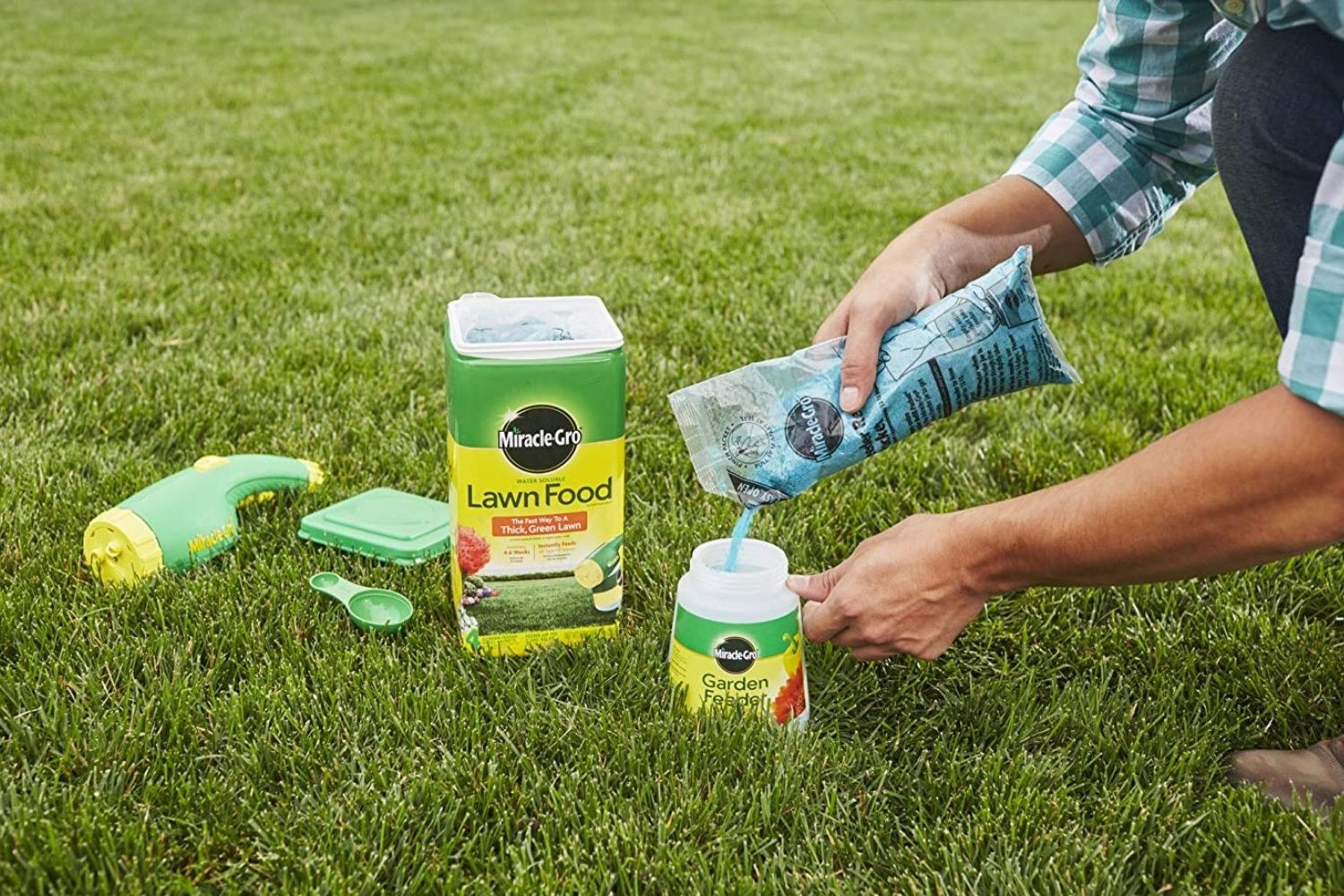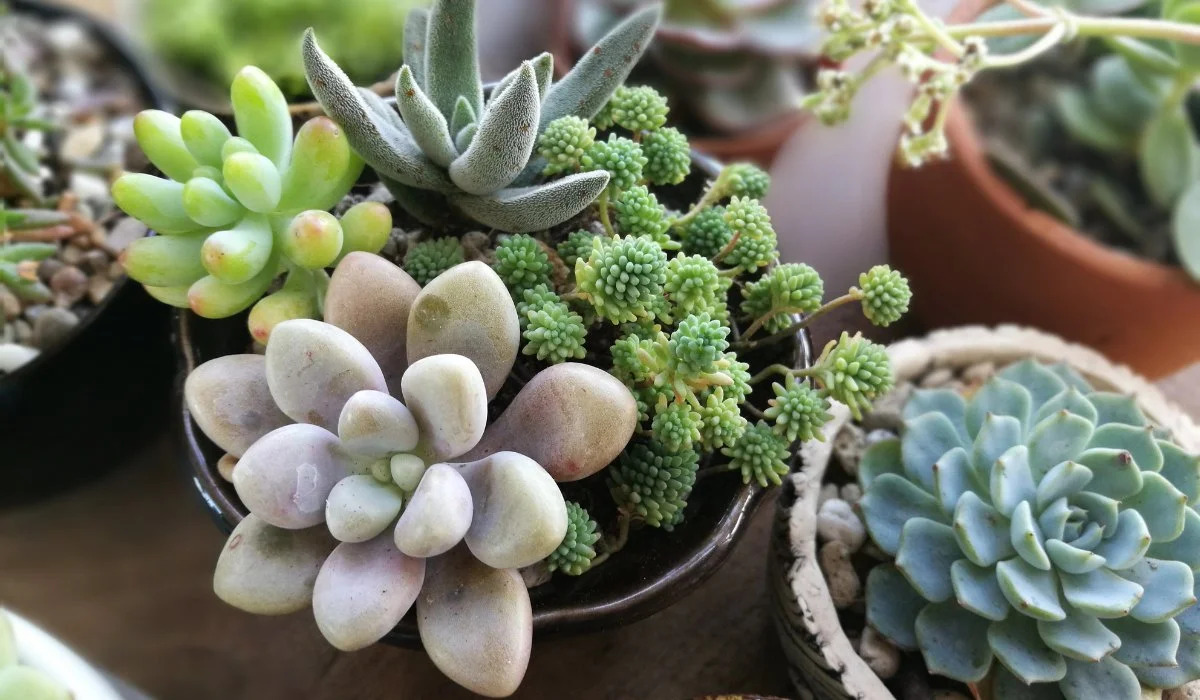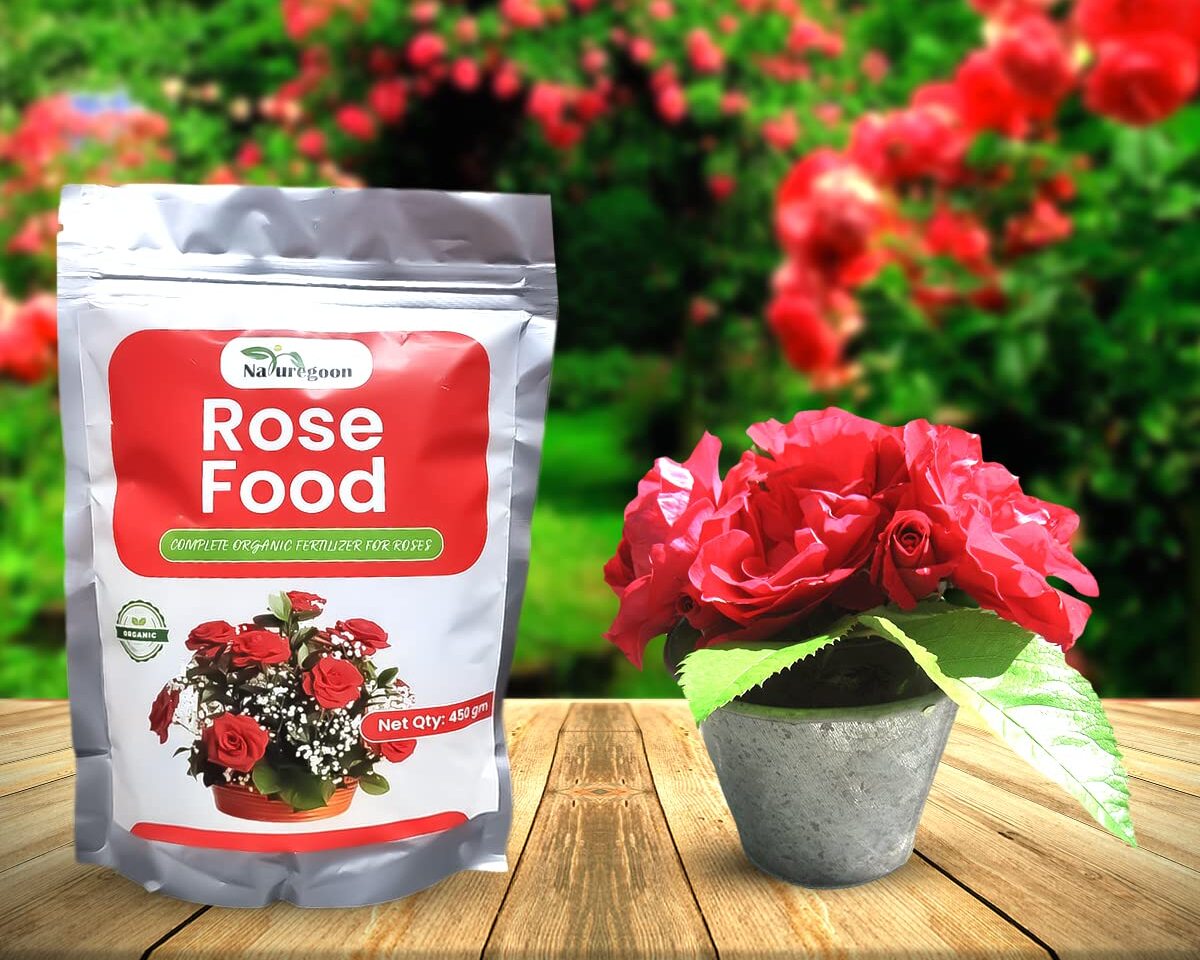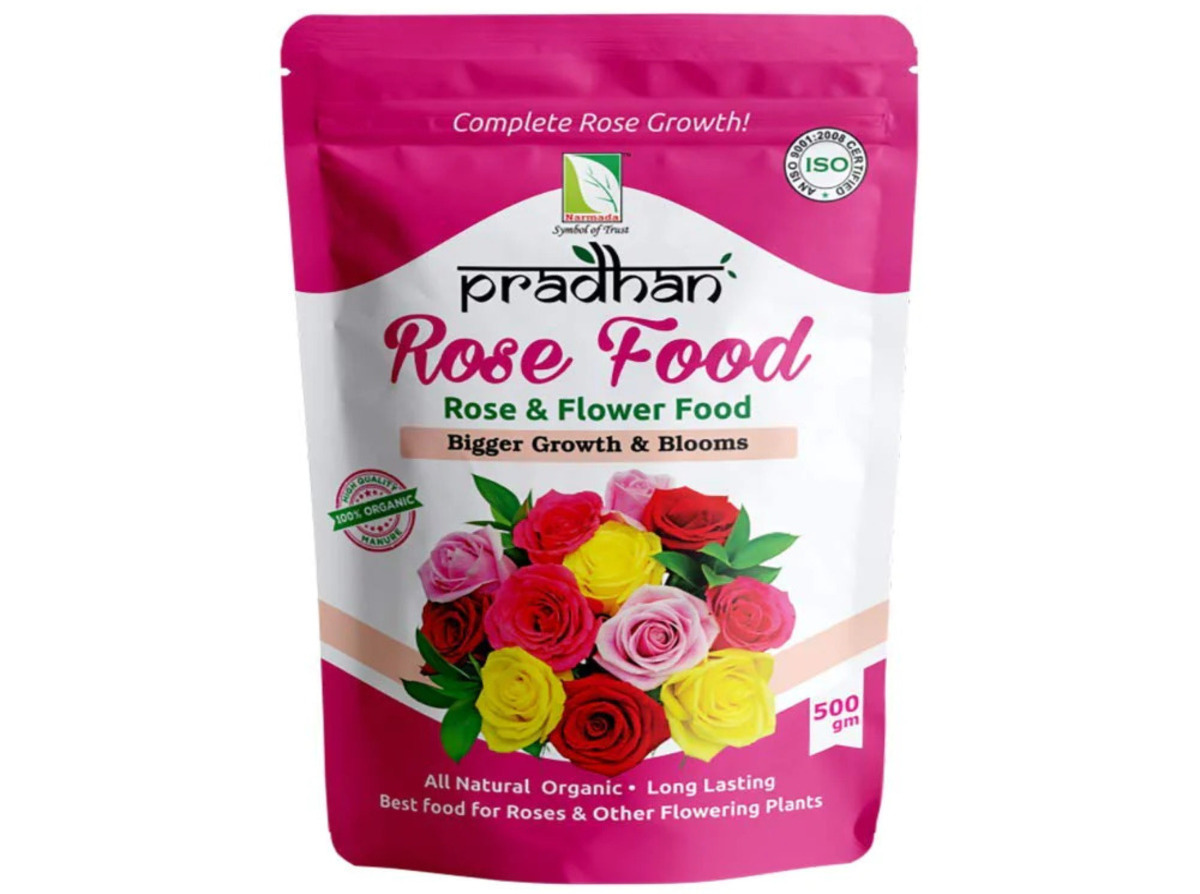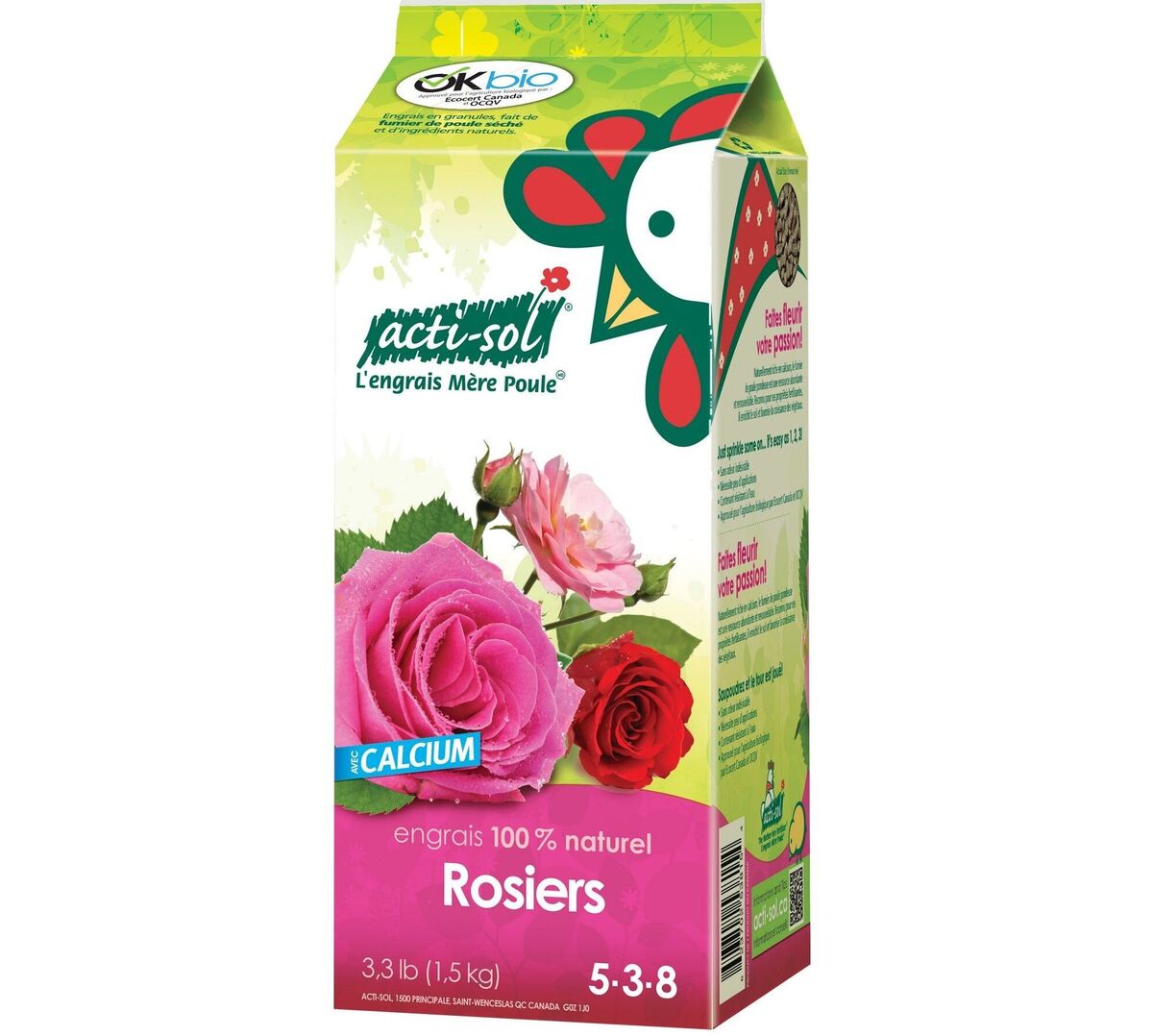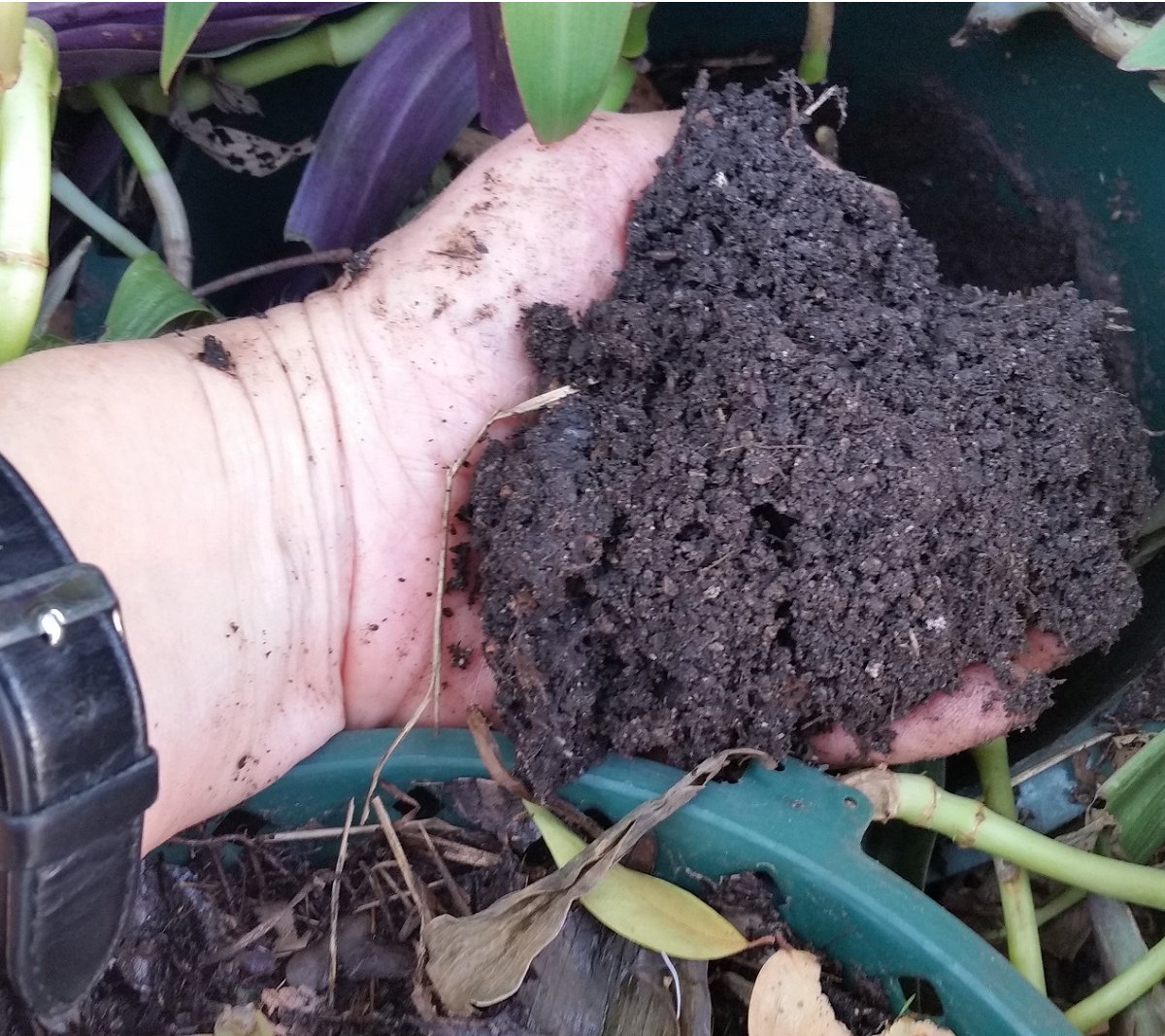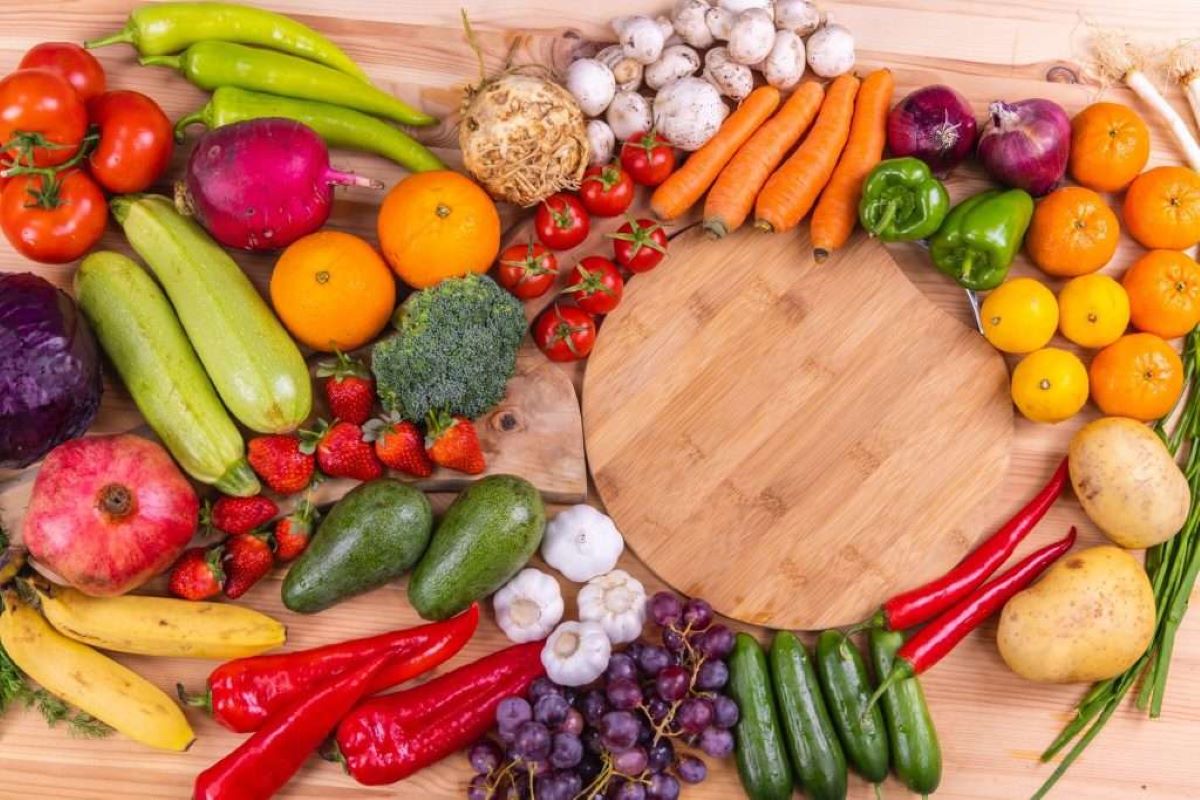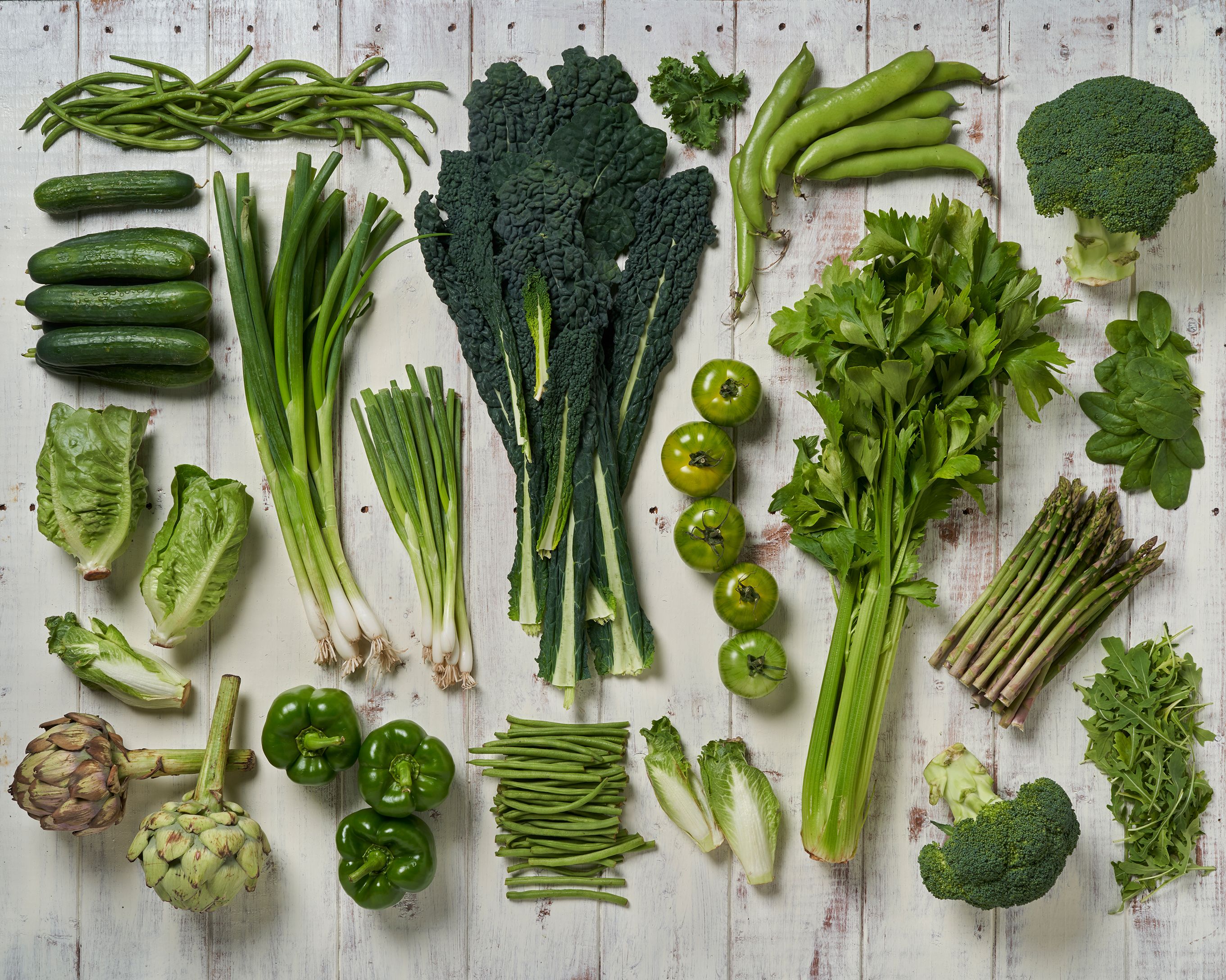Home>Gardening Techniques>What Is A Good Fertilizer For Roses
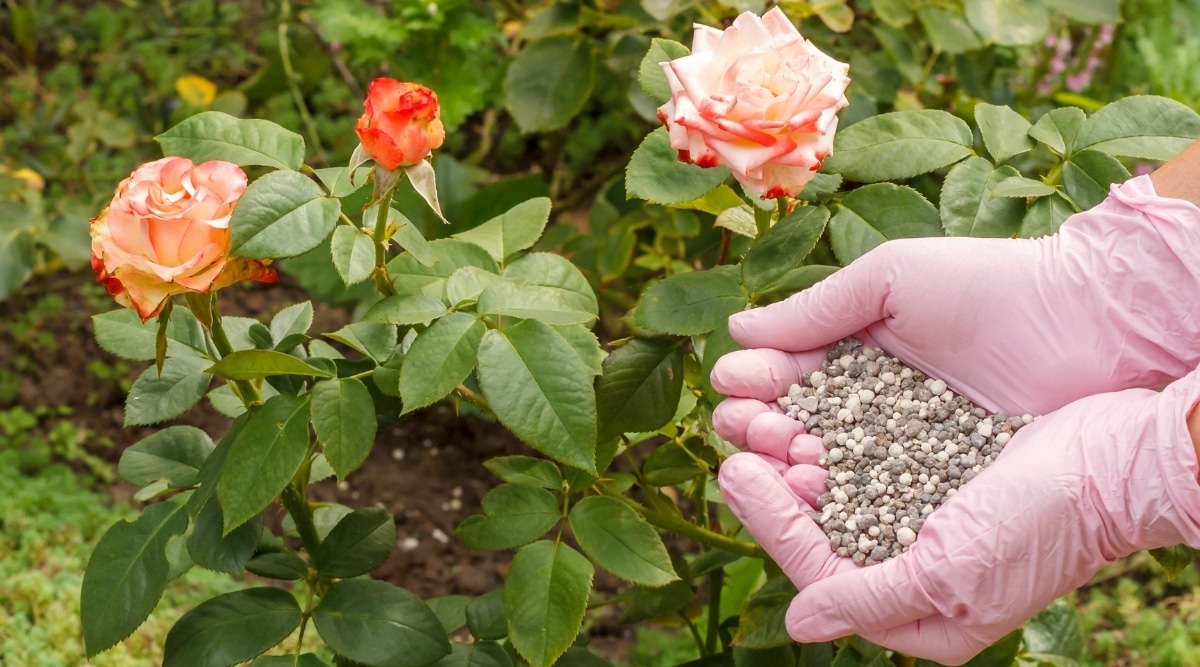

Gardening Techniques
What Is A Good Fertilizer For Roses
Modified: January 22, 2024
Looking for the best plant care advice for your roses? Discover the ideal fertilizer for roses and watch them bloom with vibrant beauty.
(Many of the links in this article redirect to a specific reviewed product. Your purchase of these products through affiliate links helps to generate commission for Chicagolandgardening.com, at no extra cost. Learn more)
Table of Contents
- Introduction
- Understanding the Nutritional Needs of Roses
- Factors to Consider When Choosing a Fertilizer for Roses
- Organic Fertilizers for Roses
- Synthetic Fertilizers for Roses
- Slow-Release Fertilizers for Roses
- Liquid Fertilizers for Roses
- Fertilizing Schedule for Roses
- Tips for Applying Fertilizer to Roses
- Common Mistakes to Avoid when Fertilizing Roses
- Conclusion
Introduction
Welcome to the world of gardening where every plant deserves some extra love and care, and roses are no exception. Roses, known for their beautiful blooms and intoxicating fragrance, require specific care and attention to thrive. One crucial aspect of rose care is providing them with the right fertilizer.
Fertilizing roses is essential for maintaining their health and promoting vigorous growth. A well-balanced fertilizer can supply the necessary nutrients that roses need to produce abundant flowers and maintain strong foliage.
In this article, we will delve into the world of rose fertilizers, exploring the different types available and providing guidance on how to choose the best fertilizer for your roses. Whether you are a seasoned gardener or a beginner, understanding the nutritional requirements of roses and knowing how to properly fertilize them is key to achieving stunning and healthy rose plants.
By the end of this article, you will be equipped with the knowledge to make informed decisions about fertilizing roses, ensuring that your plants flourish and dazzle with their vibrant colors and captivating fragrance.
Understanding the Nutritional Needs of Roses
Roses, like any other plant, have specific nutritional requirements to grow and thrive. Understanding these needs is crucial for selecting the right fertilizer. Let’s explore the essential nutrients that roses require:
- Nitrogen (N): Nitrogen is necessary for promoting healthy leaf and stem growth. It plays a vital role in photosynthesis, the process that allows plants to convert sunlight into energy. A deficiency in nitrogen can result in weak, yellowing leaves.
- Phosphorus (P): Phosphorus is crucial for flower production and root development. It aids in the transfer of energy within the plant and helps in the formation of new cells. Insufficient phosphorus can lead to stunted growth and poor flowering.
- Potassium (K): Potassium is important for overall plant health and resistance to diseases and pests. It helps regulate water movement within the plant and promotes strong root development. A lack of potassium can result in weak plants with reduced vigor.
- Calcium (Ca): Calcium is essential for cell wall development and structural integrity. It plays a vital role in root growth and helps prevent disorders such as blossom end rot. Insufficient calcium can lead to weak stems and reduced flower production.
- Magnesium (Mg): Magnesium is a component of chlorophyll, the pigment responsible for capturing sunlight for photosynthesis. It aids in the absorption of other essential nutrients. Magnesium deficiency can lead to stunted growth and yellowing of older leaves.
- Sulfur (S): Sulfur is necessary for the synthesis of proteins and enzymes. It also plays a role in chlorophyll production and overall plant growth. A lack of sulfur can result in stunted plants with yellow leaves.
- Micro-nutrients: In addition to the macronutrients mentioned above, roses also benefit from trace amounts of micronutrients such as iron, manganese, zinc, copper, and boron. These micronutrients are required in small quantities but are essential for various physiological processes in roses.
Understanding these essential nutrients will help you choose a fertilizer that provides a balanced and complete diet for your roses. Remember that the ratios of these nutrients can vary depending on the specific growth stage of your roses, so it’s essential to consider the specific fertilizer formulation and the needs of your plants.
Factors to Consider When Choosing a Fertilizer for Roses
When it comes to choosing a fertilizer for your roses, several factors should be taken into consideration. Understanding these factors will help you make an informed decision and provide your roses with the best possible care. Let’s explore these factors:
- Nutrient Ratio: Different fertilizers contain varying ratios of nitrogen (N), phosphorus (P), and potassium (K), indicated by the N-P-K ratio on the packaging. The ideal ratio for roses typically falls within the range of 1:2:1 or 2:3:1. However, the specific needs of your roses may vary depending on factors such as soil composition and growth stage.
- Fertilizer Type: Fertilizers are available in different forms, including organic, synthetic, slow-release, and liquid. Each type has its advantages and considerations. Organic fertilizers are derived from natural sources and provide a slow and steady release of nutrients. Synthetic fertilizers, on the other hand, deliver nutrients more quickly. Slow-release fertilizers provide a gradual release of nutrients over an extended period, while liquid fertilizers are quickly absorbed by the plant’s roots.
- Soil Composition: Understanding your soil’s pH level and nutrient content is essential when selecting a fertilizer. Roses generally prefer slightly acidic soil with a pH range of 6.0 to 6.5. Conduct a soil test to determine any nutrient deficiencies or imbalances and choose a fertilizer that addresses these specific needs.
- Growth Stage: Roses have different nutritional requirements during various growth stages. For example, during the early growth phase and bud development, a fertilizer high in phosphorus promotes strong root development and abundant blooms. As the plant matures, a balanced fertilizer with a higher nitrogen content can support healthy foliage and overall growth.
- Application Method: Consider the ease of application when choosing a fertilizer. Some fertilizers come in granular form and can be spread around the base of the rose plants, while others are liquid and require mixing with water for application. Choose a method that suits your preferences and gardening practices.
- Additional Nutrients: Beyond the primary macronutrients, consider whether the fertilizer provides other essential micronutrients, such as iron, manganese, and zinc. These micronutrients contribute to the overall health and vitality of your roses.
By considering these factors, you can select a fertilizer that aligns with the specific needs of your roses, ensuring they receive the proper nutrients to thrive and produce stunning blooms.
Organic Fertilizers for Roses
Organic fertilizers are derived from natural sources and provide a sustainable and environmentally friendly option for feeding your roses. They offer numerous benefits and are increasingly popular among gardeners. Let’s explore some of the advantages of using organic fertilizers for roses:
- Nutrient-rich: Organic fertilizers provide a wide range of essential nutrients that roses need to grow and thrive. These nutrients are released slowly over time, ensuring a steady supply for the plants.
- Improved soil fertility: Organic fertilizers help improve the overall fertility and structure of the soil. They enhance soil moisture retention, encourage beneficial microbial activity, and promote a healthy soil ecosystem for robust plant growth.
- Long-term benefits: Unlike synthetic fertilizers, which provide quick but temporary nutrient boosts, organic fertilizers have lasting effects. They improve the soil’s organic matter content, making it richer and more fertile over time. This contributes to the long-term health and vitality of your roses.
- Reduced risk of nutrient burn: Organic fertilizers release nutrients slowly, reducing the risk of over-fertilization and nutrient burn. This is particularly beneficial for roses, as they are sensitive to excessive amounts of nutrients, which can lead to foliage burn or other growth problems.
- Environmentally friendly: Organic fertilizers are made from natural materials, such as compost, manure, bone meal, and fish emulsion. They do not contain harsh chemicals or synthetic additives that can be harmful to the environment or soil organisms.
- Sustainable gardening: Organic fertilizers align with sustainable gardening practices by promoting the use of renewable resources and minimizing chemical inputs. Using organic fertilizers for roses contributes to a more eco-friendly and balanced ecosystem in your garden.
Some popular organic fertilizers for roses include compost, well-rotted manure, bone meal, blood meal, fish emulsion, and seaweed extract. These can be applied around the base of the plants, following package instructions or specific guidelines for each type of fertilizer. Consider using a combination of organic fertilizers to provide a well-rounded nutrient profile for your roses.
Keep in mind that organic fertilizers may take longer to show results compared to synthetic options. However, their sustainable nature and long-term benefits make them an excellent choice for gardeners looking to nourish their roses naturally.
Synthetic Fertilizers for Roses
Synthetic fertilizers, also known as chemical fertilizers, are manufactured products that provide a quick and concentrated supply of nutrients to roses. While they may not be as environmentally friendly as organic fertilizers, synthetic fertilizers offer some unique advantages for rose growers. Let’s explore the benefits and considerations of using synthetic fertilizers:
- Immediate results: Synthetic fertilizers are designed to deliver nutrients rapidly to plants, providing almost instant results. This can be particularly beneficial when roses need a quick nutrient boost or are showing signs of nutrient deficiencies.
- Precise nutrient control: Synthetic fertilizers allow for precise control over the nutrient content, enabling gardeners to tailor the fertilizer to meet the specific needs of their roses. The N-P-K ratios can be adjusted to suit different growth stages and to address any nutrient deficiencies.
- Convenience and availability: Synthetic fertilizers are widely available and can be found in various formulations, including granular, powdered, and liquid forms. They are easy to apply and can be purchased at most gardening centers or online retailers.
- Addressing specific deficiencies: Synthetic fertilizers can be formulated to target specific nutrient deficiencies in roses. For example, if your roses are lacking in phosphorus, you can select a fertilizer with a higher phosphorus content to address the deficiency.
- Controlled release options: Some synthetic fertilizers are designed to provide controlled release of nutrients over a longer period. These slow-release fertilizers are ideal for gardeners who want to minimize frequent applications and ensure a consistent nutrient supply for their roses.
When using synthetic fertilizers, it is crucial to follow the manufacturer’s instructions carefully. Overuse or improper application of synthetic fertilizers can lead to nutrient burn, salt buildup in the soil, and imbalances in the ecosystem. It is recommended to water the roses thoroughly after applying synthetic fertilizers to prevent potential damage.
While synthetic fertilizers offer immediate results and precise nutrient control, it’s important to note that they do not improve soil fertility in the long term. They may also contribute to environmental pollution if used excessively or improperly. It is recommended to use synthetic fertilizers in moderation and consider incorporating organic fertilizers or soil amendments to maintain soil health and sustainability.
Overall, synthetic fertilizers can provide a quick and efficient solution for addressing nutrient deficiencies in roses. However, it’s important to strike a balance between their benefits and potential drawbacks, taking into consideration the specific needs and goals of your rose garden.
Slow-Release Fertilizers for Roses
Slow-release fertilizers are a popular choice among rose growers looking for a convenient and efficient way to provide a steady supply of nutrients to their plants. These fertilizers are formulated to release nutrients gradually over an extended period, offering several benefits for roses. Let’s explore the advantages and considerations of using slow-release fertilizers:
- Extended nutrient release: Slow-release fertilizers break down slowly, allowing a consistent release of nutrients over several weeks or even months. This ensures a steady supply of essential nutrients for your roses, providing continuous nourishment for optimal growth.
- Reduced risk of nutrient leaching: Slow-release fertilizers are designed to release nutrients gradually, minimizing the risk of leaching. This means that the nutrients are less likely to be washed away by heavy rainfall or excessive watering, allowing the roses to take up the nutrients more effectively.
- Convenient and low-maintenance: Slow-release fertilizers offer convenience and require fewer applications compared to other types of fertilizers. Instead of frequent fertilization, a single application can provide nutrients for an extended period, reducing the need for constant monitoring and reapplication.
- Consistent growth and bloom: The gradual nutrient release provided by slow-release fertilizers promotes steady growth and consistent blooming. This can result in healthier plants with abundant flowers throughout the growing season.
- Reduced risk of burn: Slow-release fertilizers release nutrients gradually, reducing the risk of over-fertilization and burn. This is particularly important for roses, as they are sensitive to excessive amounts of nutrients, which can lead to foliage burn or hinder flower production.
- Compatibility with organic gardening: Slow-release fertilizers are available in both organic and synthetic formulations. This means that you can choose a slow-release fertilizer that aligns with your preferred gardening practices, whether that be organic or conventional.
When selecting a slow-release fertilizer for your roses, consider factors such as the nutrient ratios, duration of release, and specific nutrient needs of your plants. It is also important to follow the manufacturer’s instructions for proper application, as the performance and longevity of slow-release fertilizers can vary among different brands and formulations.
Slow-release fertilizers can be applied in several ways, including placing granules around the base of the roses or incorporating them into the soil during planting. They are generally safe to use, but it’s crucial to avoid excessive application, as this can still lead to nutrient imbalances in the long run.
Overall, slow-release fertilizers are an excellent choice for rose growers who prioritize convenience, long-lasting nutrient supply, and consistent plant growth. By providing a slow and steady release of nutrients, these fertilizers help ensure that your roses thrive and produce beautiful blooms throughout the growing season.
Liquid Fertilizers for Roses
Liquid fertilizers are a popular choice among rose enthusiasts, offering a quick and efficient way to deliver nutrients to plants. These fertilizers are available in liquid form and can be easily applied through foliar spraying or by incorporating them into the soil. Let’s explore the advantages and considerations of using liquid fertilizers for roses:
- Rapid nutrient absorption: Liquid fertilizers are quickly absorbed by the plant’s roots and foliage, allowing for rapid nutrient uptake. This can be beneficial for roses that require an immediate nutrient boost or are showing signs of nutrient deficiencies.
- Customizable nutrient ratios: Liquid fertilizers offer the flexibility to customize the nutrient ratios according to the specific needs of your roses. This allows for precise nutrient control, ensuring that your plants receive the ideal balance of nitrogen, phosphorus, and potassium.
- Foliar feeding benefits: Liquid fertilizers can be applied as foliar sprays, allowing the nutrients to be directly absorbed through the leaves. This method can have several advantages, including faster nutrient absorption and improved nutrient utilization by the plant.
- Enhanced nutrient availability: Liquid fertilizers are usually formulated to improve nutrient availability in the soil. They can help solubilize and release nutrients already present in the soil, making them more accessible to the roses’ root system.
- Convenient and versatile: Liquid fertilizers are easy to apply and can be used as a standalone fertilizer or in combination with other types of fertilizers. They are suitable for both in-ground and container-grown roses, allowing for easy and precise application.
- Frequent application: Liquid fertilizers are generally applied more frequently compared to other fertilizers. Depending on the product and the specific needs of your roses, applications may be needed every one to two weeks during the active growing season.
When choosing a liquid fertilizer for roses, consider factors such as the nutrient composition, application rate, and the specific needs of your plants. It’s important to follow the manufacturer’s instructions for proper dilution and application methods to avoid over-fertilization and plant stress.
Keep in mind that liquid fertilizers provide a quick nutrient boost, but they may not provide long-term soil fertility improvements. To ensure a well-rounded nutrient supply, consider combining liquid fertilizers with other types, such as slow-release or organic fertilizers.
Overall, liquid fertilizers offer convenience, versatility, and rapid nutrient absorption, making them an excellent choice for providing immediate nutrition to your roses. By incorporating liquid fertilizers into your rose care routine, you can help your plants thrive and achieve lush foliage and abundant blooms throughout the growing season.
Fertilizing Schedule for Roses
Establishing a proper fertilizing schedule is essential for maintaining the health, vitality, and blooming potential of your roses. While the specific schedule may vary depending on factors such as climate, soil conditions, and rose variety, here is a general guideline to help you create a fertilizing routine for your roses:
Early Spring:
As the roses emerge from dormancy, it is a good time to provide them with their first round of fertilizer. Choose a balanced fertilizer with an N-P-K ratio of around 10-10-10 or 12-12-12. Apply the fertilizer according to the package instructions, typically spreading it evenly around the base of the plants.
Mid to Late Spring:
As the roses start actively growing and producing new foliage, they will benefit from a second application of fertilizer. Choose a fertilizer with a slightly higher nitrogen content to promote robust leaf growth. Apply according to the package instructions, ensuring that the fertilizer is evenly distributed around the base of the plants.
Early Summer:
During this period, your roses are likely in full bloom. To support their flowering potential, apply a bloom-boosting fertilizer that is higher in phosphorus. Look for a fertilizer with an N-P-K ratio of around 5-10-5 or 10-20-10. Apply it as directed, ensuring that the fertilizer is thoroughly watered into the soil.
Mid-Summer:
After the peak of blooming, it is beneficial to provide another round of fertilizer to maintain the plant’s health and prepare it for the upcoming fall season. Use a balanced or slightly higher potassium fertilizer to promote root development and overall plant vitality. Apply according to the package instructions.
Early Fall:
As the growing season winds down and your roses prepare for dormancy, provide one last application of fertilizer. Choose a fertilizer with a higher phosphorus content to encourage strong root growth and nutrient storage for the winter. Follow the package instructions for application.
Note: It is important to adjust the fertilizing schedule based on specific rose varieties, regional climate, and soil conditions. Some roses may have different nutrient requirements or may benefit from additional or reduced fertilizer applications. Monitoring your roses’ growth and health will help you determine if any adjustments are needed.
Remember, when applying fertilizer, always follow the manufacturer’s instructions and avoid over-fertilization, as this can lead to nutrient burn and plant stress. It’s also crucial to water your roses thoroughly after each fertilizer application to ensure that the nutrients are properly absorbed by the roots.
By adhering to a consistent fertilizing schedule and providing the necessary nutrients at the appropriate times, you can support the overall health and beauty of your roses, leading to vibrant blooms and strong, vigorous plants.
Tips for Applying Fertilizer to Roses
Proper application of fertilizer is crucial for ensuring that your roses receive the maximum benefit from the nutrients. Consider the following tips to effectively apply fertilizer to your roses:
- Read and follow instructions: Always read and follow the manufacturer’s instructions on the fertilizer packaging. Each fertilizer may have specific guidelines regarding the application rate, timing, and method.
- Apply evenly: When spreading granular fertilizer around the base of your roses, ensure that it is applied evenly. This helps to distribute nutrients to all parts of the root system.
- Avoid direct contact with stems: Avoid direct contact between the fertilizer and the stems of your roses. This helps prevent the risk of burning or damaging the plants.
- Water before and after application: Water the soil thoroughly before applying the fertilizer. This helps the nutrients penetrate the soil and reach the roots more effectively. After applying the fertilizer, water again to ensure the nutrients are absorbed by the roots.
- Apply during the cooler part of the day: It is best to apply fertilizer during the cooler part of the day, such as early morning or late afternoon. This reduces the risk of fertilizer burn and allows the plants to absorb the nutrients more efficiently.
- Avoid fertilizing during drought conditions: Refrain from applying fertilizer during prolonged dry spells or drought conditions. Moisture is essential for the uptake of nutrients by the roots, so it is important to ensure the roses are well-hydrated before fertilizing.
- Consider using a slow-release fertilizer: Slow-release fertilizers provide a gradual release of nutrients over an extended period. This can be beneficial as it reduces the frequency of fertilizer applications and ensures a consistent nutrient supply for your roses.
- Monitor plant response: Observe your roses closely after fertilization. If you notice any signs of stress or leaf burn, such as yellowing or wilting, dilute the fertilizer by watering the plants thoroughly. Adjust the fertilizer application rate as needed to prevent further damage.
- Alternate between fertilizers: Consider using different types of fertilizers throughout the growing season to provide a well-rounded nutrient profile for your roses. This can include alternating between organic and synthetic fertilizers or using a combination of slow-release and liquid fertilizers.
- Use caution with new plantings: Newly planted roses may have sensitive root systems and may require a lighter application of fertilizer compared to established plants. Follow the specific recommendations for fertilizing newly planted roses to avoid damaging the delicate roots.
Applying fertilizer correctly ensures that your roses receive the essential nutrients they need to thrive and produce beautiful blooms. By following these tips, you can optimize the effectiveness of the fertilizer and promote the overall health and vigor of your rose plants.
Common Mistakes to Avoid when Fertilizing Roses
Fertilizing roses is an important aspect of their care routine, but it’s essential to avoid common mistakes that can negatively impact their health and growth. By being aware of these mistakes, you can ensure that your roses receive the right nutrition without causing harm. Here are some common mistakes to avoid when fertilizing roses:
- Over-fertilization: Applying too much fertilizer can be detrimental to roses. Excessive nutrients can lead to nutrient burn, stunted growth, or even death of the plants. Follow the recommended application rates and timing indicated on the fertilizer packaging.
- Under-fertilization: On the other hand, neglecting to provide sufficient nutrients can result in weak or unhealthy roses. Pay attention to your roses’ growth and foliage color to determine their nutrient needs and adjust your fertilizing schedule accordingly.
- Imbalanced nutrient ratios: Using a fertilizer with imbalanced nutrient ratios can lead to issues with growth and flowering. Be sure to select a fertilizer specifically formulated for roses or adjust the nutrient ratios based on their growth stage and needs.
- Incorrect timing: Timing is crucial when fertilizing roses. Applying fertilizer too early or too late in the growing season can disrupt their growth cycles and potentially impact their ability to bloom. Follow the recommended fertilizing schedule for your specific climate and region.
- Not watering before and after application: Fertilizer needs moisture to properly dissolve and be absorbed by the roots. Water the soil thoroughly before applying fertilizer to ensure that the nutrients are washed down to the root level. Similarly, water the roses again after application to help the nutrients penetrate the soil.
- Application on dry foliage: Avoid applying fertilizer to dry foliage, particularly in sunny and hot conditions. The concentrated nutrients can potentially burn the leaves and cause damage. It’s best to apply fertilizer to moist soils and avoid direct contact with the leaves.
- Using the wrong fertilizer type: Not all fertilizers are suitable for roses. Use a fertilizer specifically formulated for roses or select one that provides the necessary nutrients for their growth. Avoid using fertilizers high in nitrogen during the blooming season, as this can lead to excessive foliage growth at the expense of flowers.
- Neglecting soil health: Fertilizing alone is not enough to maintain healthy roses. Ensure that the soil is well-draining, properly aerated, and rich in organic matter. Regularly amend the soil with compost or organic matter to improve its fertility and moisture retention capacity.
- Forgetting to adjust fertilizer amounts based on plant needs: As roses grow and mature, their nutrient requirements may change. Adjust the amount of fertilizer applied based on the size, age, and specific needs of each rose plant.
- Ignoring the signs of nutrient deficiencies: Keep a close eye on your roses for any signs of nutrient deficiencies, such as yellowing leaves or stunted growth. If you notice any issues, identify the nutrient lacking and address it with the appropriate fertilizer or soil amendment.
By avoiding these common fertilizing mistakes, you can provide the right balance of nutrients to your roses, promoting their overall health, vigor, and abundant blooms.
Conclusion
Fertilizing roses is a vital aspect of plant care that directly impacts their growth, flowering, and overall health. By understanding the nutritional needs of roses and choosing the right fertilizer, you can provide them with the essential nutrients they require to thrive. Whether you opt for organic or synthetic fertilizers, slow-release or liquid forms, it’s essential to consider factors such as nutrient ratios, soil composition, growth stage, and application methods.
Organic fertilizers offer sustainability, long-term soil fertility improvements, and environmental benefits. They provide a rich source of nutrients and promote overall soil health. On the other hand, synthetic fertilizers offer precise nutrient control, immediate results, and convenience. Slow-release fertilizers provide a steady nutrient supply over time, reducing the frequency of applications. Liquid fertilizers offer rapid nutrient absorption, versatility in application methods, and the ability to customize nutrient ratios.
Establishing a fertilizing schedule based on the specific needs of your roses, regional climate, and soil conditions is crucial. It ensures consistent nutrient supply throughout the growing season and supports healthy growth and blooming. However, it’s essential to avoid common mistakes such as over-fertilization, incorrect timing, imbalanced nutrient ratios, and neglecting soil health.
Remember to read and follow the instructions on the fertilizer packaging, evenly distribute the fertilizer, water before and after application, and monitor the response of your roses. Adjust the fertilizing approach as needed to address nutrient deficiencies and ensure plants receive the proper nutrients without causing harm.
By providing the right nutrients at the right time and in the right manner, you can nourish your roses and enjoy vibrant blooms, strong foliage, and healthy plants. With proper fertilization, your roses will reward you with their beauty, fragrance, and lasting appeal in your garden or landscape. So, take the time to understand their nutritional needs, choose the suitable fertilizer, and fertilize your roses with care, and watch them thrive and flourish.
